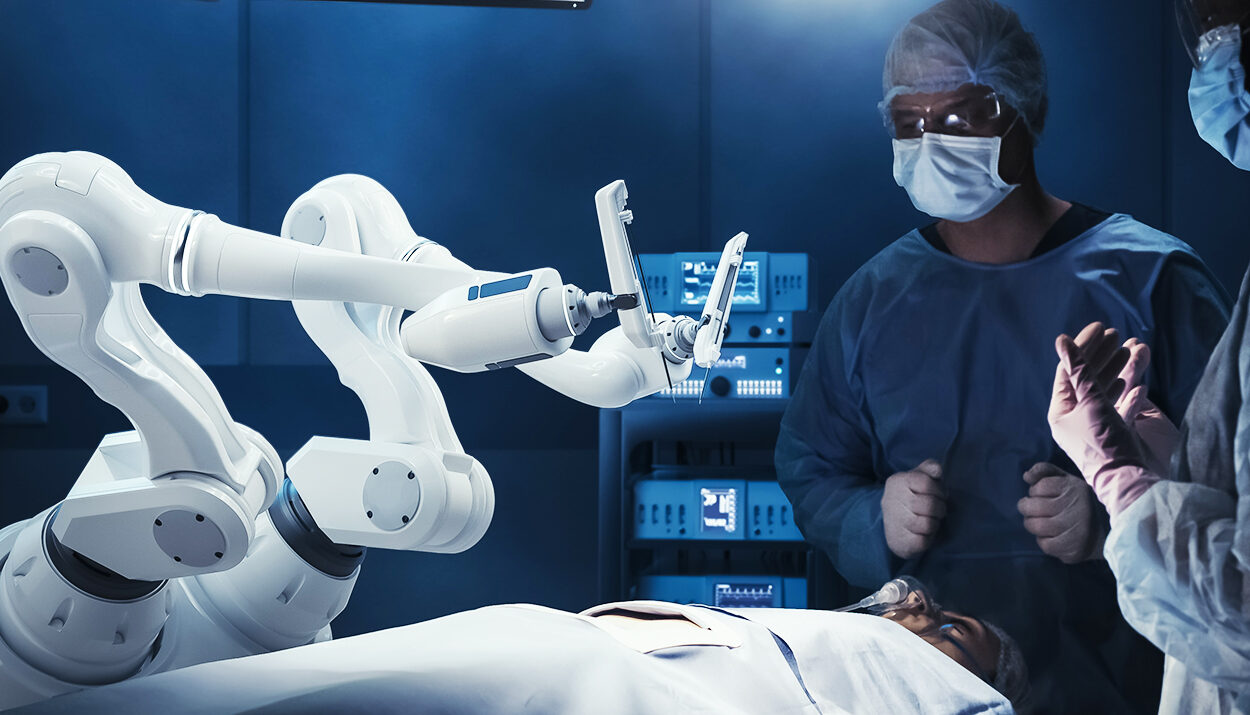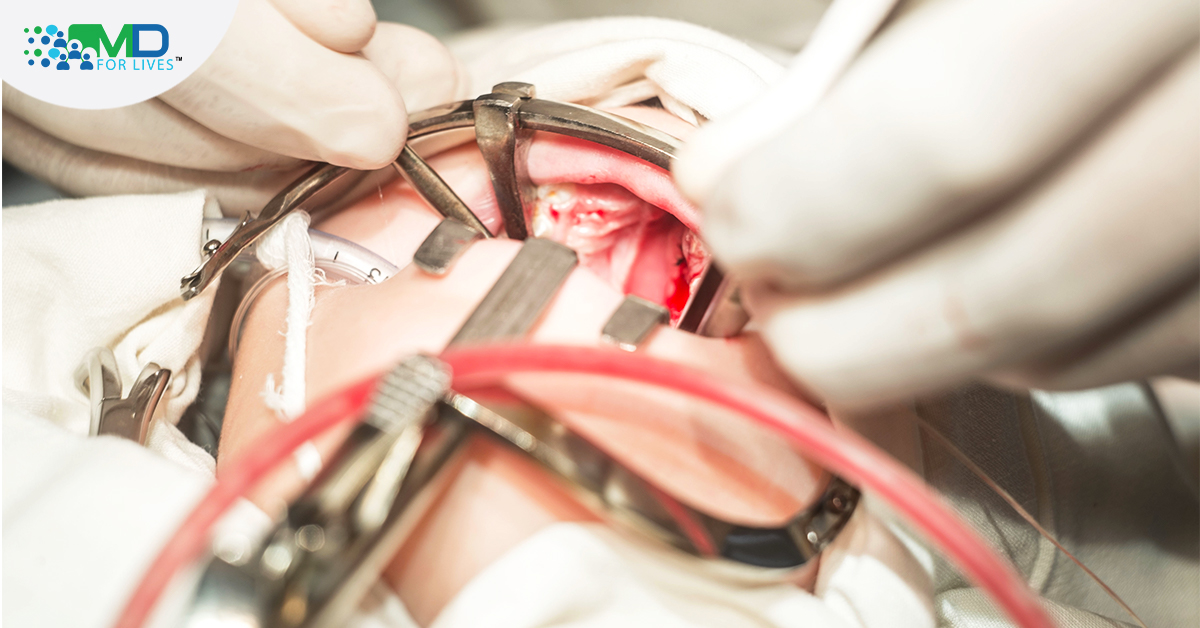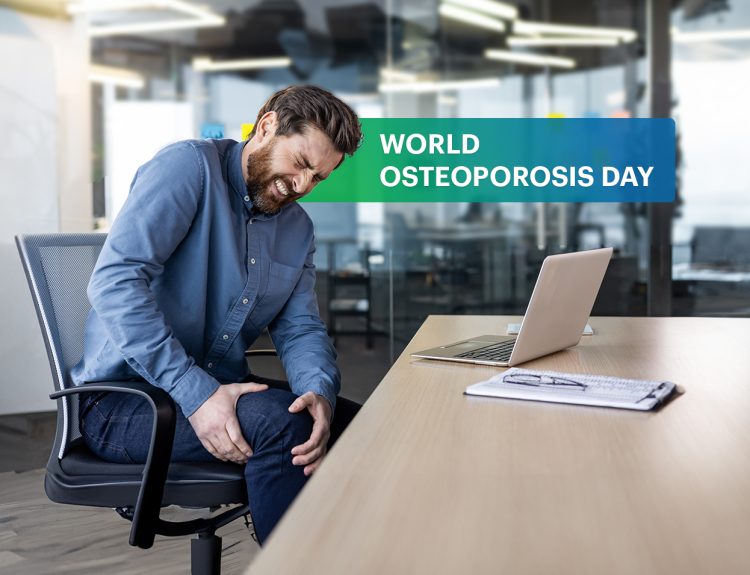The year 1985 marked a significant milestone in the field of medical science. It was during this time that doctors officially used the first robot-assisted platform – the Programmable Universal Machine for Assembly 200 (PUMA) for neurosurgical biopsy. Now, cut to the present day, robotic-assisted surgery has revolutionized various medical specialties, and orthopedics is no exception.
Whether it is about intricate joint replacements or complex spinal procedures, robotic systems offer excellent precision and better patient outcomes. However, such advanced innovations in robotic surgery in Orthopedics aren’t solely because of engineers and manufacturers. Rather, it’s the insights of Orthopedists that serve as guidelines in the development of robotic surgery. Afterall, they are specialized professionals who understand the practical challenges and unmet needs of patients.
Hence, to recognize this critical role, innovative market research platforms like MDForLives come to the rescue! We offer surgeons a myriad of opportunities to influence the future of robotic surgery through paid medical surveys.
But how does that help? Well, these surveys are convenient ways for Orthopedists to share their views on current and future robotic surgery. This ultimately helps healthcare brands create better technology for enhanced patient outcomes.
The Growing Role of Robotics in Orthopedic Surgery
Robotic assistance has experienced a major shift in the present day. It has transcended from being a niche technology to a common tool in the field of Orthopedics. In fact, robotic surgical procedures are being extensively used in complex knee, hip, and spine operations. But this increased dependency isn’t just trend-driven; it is supported by real-world data!
Let’s take a practical instance to understand this clearly.

A 2023 study published in The Journal of Bone and Joint Surgery showcased that robotic-assisted knee arthroplasty resulted in 30% reduced revision rates when compared to conventional knee arthroplasty. That’s enough reason to prove that robotics has become a crucial part of the field of orthopedic surgery.
Now that you’re aware of the role of robotic surgeries, let’s look at the benefits it brings to the table:
- It has helped improve overall surgical precision: Robotic systems have offered surgeons enhanced control over the procedure, which leads to greater surgical precision. This includes highly accurate bone preparation and component positioning.
- It helps in faster recovery: A higher level of precision automatically translates to less disruption of soft tissues. As a result, the suffering and rehabilitation time of patients have reduced significantly.
- It has led to enhanced outcomes: Accurate implant alignment is very much crucial for long-term functioning and durability. The main goal of robotics is to improve this consistently.
That being said, no technology exists without its share of drawbacks. Integration of robotics, therefore, presents the following challenges:
- Substantial installation and maintenance costs: The initial purchase price, along with the ongoing maintenance costs of robotic systems, require a major financial commitment. That’s one of the key reasons why many healthcare institutions still haven’t been able to implement these advanced mechanisms.
- Challenging learning curve: Surgeons and Operating Room (OR) teams require specialized and dedicated training to master the use of these complex systems effectively. This makes the learning curve significantly more difficult.
- Disruptions in schedule: Adaptations to established surgical workflows and Operating Room (OR) setups to incorporate robotic platforms take significant time and planning. This leads to potential disruption in existing schedules.
Why Do Orthopedists’ Insights Matter in Robotic Surgery Development
Honestly, it’s the engineers who are responsible for designing the robotic technology. However, Orthopedists are the ones who make critical decisions with the robotic system itself. This hands-on approach helps provide valuable, real-world feedback that lab tests fail to reveal. It helps identify both the strengths and weaknesses of these systems, which are essential for the refinement of these sophisticated tools for optimal clinical usage.
Here’s how an Orthopedic surgeon’s expertise helps with innovation in robotic surgery:
- Enhancements in Hardware
The physical interaction between the surgeon and the robot is critical. Their feedback on the responsiveness of the robotic arm, the ergonomics of instruments, and the usefulness of feedback guides crucial hardware improvements. This ensures the tools feel like a reliable extension of your surgical skills.
- Enhancements in Software
An Orthopedist’s input directly influences the refinement of surgical planning software. Their feedback on interface clarity, feature requests, and workflow integration helps create more intuitive programs. This guidance is also vital for the development of advanced capabilities, like AI robotic surgery enhancements for better predictive analytics.
- User-friendliness
Besides the core functionality, surgeons also help make robotic systems practical for the busy Operating Room (OR) environment. Their practical insights into intuitive controls, efficient setup processes, and interfaces can significantly shorten the learning curve for the entire surgical team.
Most importantly, early feedback helps developers identify and rectify potential issues in design before they hinder clinical performance. It effectively helps prevent missteps and makes sure the technology evolves to meet patients’ needs.
How Paid Surveys Enable Orthopedic Surgeons to Drive Innovation in Robotic Surgery
So, how can Orthopedists translate their experience into actionable insights? Paid medical surveys are the answer! These questionnaires provide a structured and efficient way to collect valuable insights from Orthopedists. Companies pioneering robotic surgery technologies actively seek out Orthopedic surgeons for their real-world feedback. Their expertise helps such brands to validate designs, identify unmet clinical needs, and guide research and development for future innovations in robotic surgery.
The process is quite simple: specialized platforms help match relevant paid medical surveys to surgeons based on their profiles. An Orthopedist completes these questionnaires at their convenience and receives an honorarium for their expert contribution.
These detailed surveys dive into specific areas that are critical for product development. Some of the usual topics of such questionnaires include:
- Challenges in robotic-assisted procedures
Survey questions are framed to ask experts about specific technical difficulties or limitations that they’ve encountered with current systems. Or, it can be about any ergonomic issues that they might have experienced during surgery.
These are crucial data that help identify pain points and drive advanced solutions.
- Preferences in robotic system design
Surveys often explore what surgeons value the most. This might include ideal console layouts, desired instrument functionalities, software interface improvements, or preferences regarding haptic feedback and visualization.
- Comparison of robotic vs. traditional surgeries
A surgeon’s perspective helps analyze how robotic approaches compare to conventional methods. Their feedback helps companies understand the differences like operative time, perceived accuracy, learning curves, or specific patient recovery milestones.
Moreover, reputable survey platforms, like us, MDForLives, operate under strict ethical codes and comply with data privacy regulations such as GDPR and CCPA. Hence, participating in a legitimate robotic surgery survey ensures that your professional confidentiality is retained. Your individual responses are kept confidential, and the feedback provided to companies is anonymized, which protects your identity while delivering valuable insights to healthcare brands.
The Benefits of Participating in Paid Medical Surveys
An Orthopedist’s participation in medical surveys is indeed essential for enhanced treatment protocols and innovations in robotic surgery. However, what’s in there for the professionals?
Let’s take a closer look:
- It helps influence the future of orthopedic robotic surgery
Their input directly impacts the development of orthopedic technology. Their insights serve as a guide for developers to create more surgeon-friendly robotic systems. Orthopedic surgeons are a key stakeholder in enhancing the future tools of the trade. They contribute significantly to meaningful robotic surgery healthcare innovation.
- It paves the way for handsome compensation
An Orthopedist’s specialized knowledge and time are the most valuable commodities. Paid medical surveys recognize this by offering competitive honoraria for their participation. Therefore, providing insights becomes an opportunity for these professionals to generate a handsome supplementary income. It rightfully compensates them for lending their crucial perspective and valuable time to companies bringing advancements in medical technology.
- It helps professionals stay updated on upcoming innovations
Active survey participation provides healthcare professionals with a window into the latest developments in robotic-assisted surgery. The questions can expose them to emerging trends, new technological approaches, and potential future directions. This eventually helps them stay informed about the innovation in robotics and surgery.
- It enables flexible participation
Unlike many professional commitments that demand fixed schedules, paid surveys offer substantial flexibility. Most of these surveys can be completed online, during spare hours, between cases, or even from home! This allows the specialized professionals to contribute their valuable insights without disrupting their clinical or personal schedule.
For instance, orthopedic surgeons taking part in paid surveys through MDForLives earn up to $200 per survey! That’s quite a handsome compensation that requires no fixed commitments or schedules!
How to Get Started with Paid Medical Surveys
If you’re determined to initiate your survey-taking career, here are some best ways that can help you get started.
- Start by searching online for reputable medical survey platforms.
- Look for those with positive reviews and clear contact information.
- Once you have a few options in hand, visit their websites and review their terms and conditions to make sure that they align with your expectations.
One of the best hacks to choose a reputable survey platform is to find one that stays transparent about their research partners and data usage policies. Platforms like ours – MDForLives, have established reputations within the medical community. Added to that, check for affiliations with medical associations or research institutions as indicators of legitimacy. Finally, be aware of platforms that promise unrealistically high payouts.
Next comes the sign-up procedure, which is usually quite simple across any platform. Just create an account and verify your professional credentials. This verification might require you to submit your medical license or other relevant documents. Other than that, make sure that you understand the platform’s privacy policy and how your data will be used. Most importantly, respond honestly and adhere to any ethical guidelines provided by the survey platform to maintain compliance.
Paid Surveys: Your Ticket to Contributing to Ortho-Innovations

To sum it up, paid medical surveys offer orthopedic surgeons a valuable and direct pathway to identify innovations in robotic surgery. Through their practical insights and evaluation of current robotic systems, surgeons become integral collaborators in the development process. This engagement fosters a mutually beneficial ecosystem. Surgeons gain access to technologies that are better tailored to their specific requirements. At the same time, manufacturers receive crucial real-world feedback to refine their products. Ultimately, the patients enjoy the benefits of more precise, efficient, and effective surgical procedures.
That’s exactly why we at MDForLives strongly encourage all orthopedic specialists to register with us and participate in paid surveys. Their clinical expertise remains vital in the development of the future of surgical technology and patient care.
FAQs
-
What are paid medical surveys for orthopedic surgeons?
Paid medical surveys are great opportunities for Orthopedists to share their opinions and experiences related to medical devices, procedures, and technologies, including robotic surgeries. In exchange for their time and valuable insights, they receive fair compensation.
-
Why do companies pay orthopedic surgeons for surveys?
Companies pay orthopedic surgeons because their expert opinions and practical experiences are crucial to identifying the needs and challenges within the field. This feedback helps companies enhance existing products, develop new and innovative technologies, and ensure their offerings align with the demands of the field.
-
How do orthopedic surgeons impact robotic surgery development?
Through direct feedback on the usability, effectiveness, and potential improvements of current robotic systems, Orthopedists bring over a huge impact in robotic surgery development. Their insights into surgical workflows, unmet clinical needs, and desired features guide manufacturers in designing and developing next-generation robotic platforms.
-
Do I need prior experience with robotic surgery to take these surveys?
While prior experience is beneficial for certain surveys that focus on specific platforms/ types of robotic surgery, it is not always a strict requirement. Surveys may also seek the perspectives of surgeons who consider adopting robotic technology or have insights into the broader needs and challenges in orthopedic surgery.

MDForLives is a global healthcare intelligence platform where real-world perspectives are transformed into validated insights. We bring together diverse healthcare experiences to discover, share, and shape the future of healthcare through data-backed understanding.






